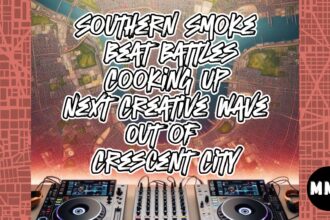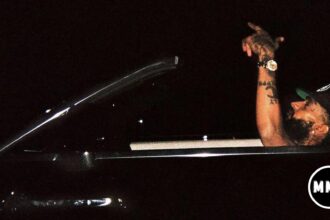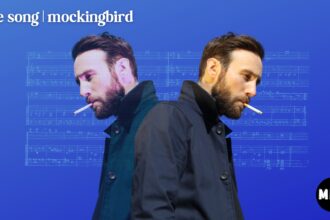Everyone knows.
Everyone remembers.
Everyone born before, say 1991, can recount where they were on 9/11 when they heard the news.
It is cliché to point this out, and tiresome to launch into my own retelling, but I will make it short.
I am a pastor, and on September 11, 2001, I was at a clergy retreat in Vermont, studying the Gospel of Mark. Deep in a discussion of how Jesus turned his face toward the agony awaiting him in Jerusalem, the group was startled when the director of the retreat center charged through the door and said an airplane had just crashed into one of the World Trade Center towers, and that we should come gather around the TV in the lounge.
We watched in horror and then dispersed. I drove home to Western Massachusetts talking nonstop on my cellphone—desperate to learn what had happened and what the nation’s leaders were doing in response.
When I finally got to watch the unfolding events on TV, I, like so many others, realized that President George W. Bush was not equal to the task of comforting a stricken and grieving nation. He tried to provide leadership, offer solace, and sound strong, but he was fumbling and weak; we knew he was in over his head.
In the absence of firm leadership from the White House, the nation turned to trusted experts, cultural icons, and religious leaders for wisdom, reassurance, and hope. One of those icons who people longed to hear from—almost demanded a response from—was Bruce Springsteen.
Born in 1949, Springsteen grew up in Freehold, NJ, and spent time on the Jersey shore. His father was a bus driver, his mother was a secretary, and his working-class roots informed much of his early music. Springsteen transformed those formative roots into powerful songs that inspired millions of us.
By 2001, he had become an extraordinary storyteller who sang about growing up in a gritty town with scrappy friends; he was the embodiment of American up-from-the-bootstraps success; he was a rock and roll idol whose heart was as big as his talent, and he was the model of a musician-activist who gave us hope.
On 9/11, when the planes hit the towers, the Pentagon, and that field in Pennsylvania, Springsteen was already the voice of common people, the loved and admired hero of working families, and the conscience of a nation. Fans turned to him for a statement, a song, a reaction. Give us an anthem, people begged, help us put our feelings into words, we need you now.
Springsteen, who could see Manhattan and the smoldering ruins of the Twin Towers from the Jersey shoreline, heard the call, felt the pressure, and got to work. Ten months later, The Rising, Springsteen’s 12th studio album, was released on July 30, 2002; we are now celebrating the 20-year anniversary of this remarkable recording.
This album represents Springsteen at his finest. He said he wanted to help his fans cope with the tragedy, and he did. He later told The Rolling Stone, “The fundamental thing I hear from fans is, ‘Man, you got me through.’”
The title song, “The Rising,” is one of two songs dedicated to the firefighters who risked or lost their lives saving people in the Twin Towers. Because Springsteen wrote the verses in the first person, there is an intimacy to the story being told. It seems that Springsteen wants us to become, briefly, one of the firefighters who ascended those stairs—knowing that they might not return.
Can’t see nothing in front of me
Can’t see nothing coming up behind
I make my way through this darkness
I can’t feel nothing but this chain that binds me
Lost track of how far I’ve gone
How far I’ve gone, how high I’ve climbed
On my back’s sixty-pound stone
On my shoulder, a half-mile line.
Another song, “Into the Fire,” explicitly honors all the firefighters who died on 9/11.
The sky was falling and streaked with blood
I hear you calling me,
Then you disappeared into the dust
Up the stairs, into the fire
The verses yank our hearts right out of our chests. But it is the gospel-like chorus in “Into the Fire” that soars and helps us to cope. Springsteen’s Catholic upbringing emerges with beauty and power in the four-line chorus, which is repeated over and over and serves as a memorizing, life-giving chant.
May your strength give us strength
May your faith give us faith
May your hope give us hope
May your love give us love.
The Rising has its share of other-worldly, haunting images in its songs, such as in “Paradise,” which seems to invoke the reflections of a suicide bomber: “I hold my breath and close my eyes, and I wait for paradise.”
There is also the vision and hope of reconnecting with loved ones in the afterlife as in “Further On (Up the Road).” Here he sings “One sunny mornin’ we’ll rise I know, and I’ll meet you further on up the road.”
A number of mournful songs including “Nothing Man,” “You’re Missing,” and “Empty Sky,” give way to upbeat songs, such as “Let’s Be Friends (Skin to Skin),” and “Mary’s Place,” which rails against the sadness: “…Meet me at Mary’s place, we’re gonna have a party…tell me how do we get this thing started…”
The twelve songs of The Rising are all spectacular. This is a one-for-the-ages collection of stories filled with tears and guts, blood, and hope. Ten months after the horror of 9/11, when people were still raw, reeling, grieving, and off-balance, Springsteen gave us the gift of this album with all its fullness, intensity, courage, and lyrical passages.
It is clear why Springsteen’s fans clamored for a musical response from him after 9/11. At that time, even though he was a superstar and cultural icon, the Boss still felt like one of us—a self-made kid from Jersey, a working-class guy who was street-smart and spunky.
Even with his lavish home estate, his many millions, and his hyper-fame, Springsteen felt like he knew our hearts and we knew his. We turned to him and said essentially, “Talk to us, sing to us, make it better.” The Rising did its job. Twenty years ago it helped us in untold ways. Those songs became our anthems and our lifeline.
So where are we now?
Springsteen, now 72, is not just a superstar, he is a mega-super-superstar. Said to be worth more than $650 million, Springsteen is extraordinarily wealthy and runs in the orbits of the elite and powerful.
Since The Rising, Springsteen has released eight studio albums and has appeared for years in “Springsteen on Broadway” to rapturous applause and standing ovations, night after night. He has also seen his memoir, Born To Run (2017), published to wide acclaim.
So where is our Bruce now? Can a cultural icon receive this much notoriety, fame, adoration, wealth, and power and stay humble, scrappy, and close to their roots? Could the Bruce Springsteen of today write the songs on The Rising of two decades ago?
Twenty-five years ago, when my husband, son, and I went to an arena in Connecticut to hear Springsteen in concert, I believed him when he sang “…tramps like us, baby, we were born to run.” Having spent my formative childhood years in New Jersey, I embraced this charismatic, gutsy performer who claimed his identity as a kid from the Jersey shore—a tramp who had somehow stumbled into fame and fortune.
During the live performance, it felt like he was hungry—to be heard, understood, and accepted. His songs were simultaneously polished and raw, his performance was electrifying, and he seemed humble despite his stardom.
Maybe it is inevitable, but I fear that Springsteen has drifted away from his early identity, his working-class pluck, and his memories of modest beginnings. When a performer becomes that much of a megastar, it may be impossible to hold on to one’s earlier, less-prominent self.
What is clear is that Springsteen now lives in the rarified atmosphere of Broadway lights, accolades in reviews, elite parties, and numerous awards and honors. He has received 20 Grammy Awards, 2 Golden Globes, an Academy Award, a Tony Award—and, on top of that, the Obamas are his dear friends.
This is not a rhetorical question, but one I ask sincerely: is it humanly possible to remain humble, modest, and down-to-earth when showered with this much attention, praise, and recognition?
For me, Springsteen is not the cultural icon he once was, the guy who spoke for and to ordinary people. I am still a fan—I admire his artistry and am moved by his music. But I feel that now I almost have to navigate around his ego to appreciate his gifts. To me, he has lost his humility.
We know that Springsteen sensed the dangers of stardom, aware that his oversized success might tug him away from his working-class roots. He alluded to this fear and tension in 1992 when he wrote the song “Better Days”:
Well I took a piss at fortune’s sweet kiss
It’s like eatin’ caviar and dirt
It’s a sad funny ending to find yourself pretending
A rich man in a poor man’s shirt
Yes, a rich man in a poor man’s shirt. That is a telling image.
I have found the Springsteen swagger of the 1980s and 90s—which signaled a rough and tumble guy trying to convince the world that he was somebody—to have given way to an I-am-somebody-and-don’t-you-
That seemed painfully evident in the “Springsteen on Broadway” performances when he stopped playing his beloved classics and asked audiences not to sing along with him. After the audience joined in singing with him, Springsteen paused and said, “I got this.” He then turned those anthems that we love to sing into solo performances, excluding his fans who had for so long helped to carry the tune.
Last year, Springsteen and Obama released their $50 coffee table book, Renegades: Born in the USA. I paused and wondered: “renegades?” Can Bruce still claim that label? With large, flattering photographs of Obama and Springsteen on almost every page, the book is a love letter to this country, a love letter to each other, and a love letter to themselves.
Is Bruce Springsteen a changed man today? Yes, for sure. Now 72 and one of the most recognizable people in the nation along with the President, Oprah, Tom Brady, and Donald Trump, Springsteen is rock and roll royalty in a category by himself. Maybe it has been impossible for him to not read and believe his own press.
Age, fame, wealth—and an ego that has been stroked relentlessly—have changed the working class kid from Jersey into a privileged celebrity. Still, like countless others, I remain devoted to Bruce. I appreciate who he is and what he has given us all through his music.
The Rising was and is a gift to our nation. We are grateful for the solace and wisdom Bruce Springsteen gave us in the wake of tremendous pain after 9/11. The Rising will stand forever as an extraordinary collection of songs that needed to be written and heard.










Really great read and I appreciated your insight. It is a truly powerful album. Thanks.